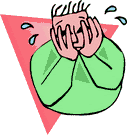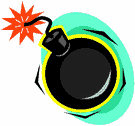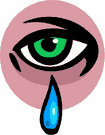

|
A continuing education course for 8 ces
consisting
of reading and taking a post-test on
Assessment
and Treatment of Patients with Coexisting Mental Illness and Alcohol
and Other
Drug Abuse
Treatment Improvement Protocol (TIP) Series 9
U.S. DEPARTMENT OF HEALTH AND HUMAN SERVICES
Public Health Service
Substance Abuse and Mental Health Services Administration
Center for Substance Abuse Treatment
Rockwall II, 5600 Fishers Lane
Rockville, MD 20857DHHS Publication No. (SMA) 95-3061
Fulfills
CA BBS mandatory substance abuse training and mandated prelicensure
requirement
|
Assessment
and Treatment of Patients with Coexisting Mental Illness 1.
Clinicians will understand the goals and components of
substance abuse treatment with patients with a
coexisting mental illness.
5.
Clinicians will become familiar with the types of medications
used in psychiatry and addiction medicine and for patients
with dual disorders.
|

Introduction
By
combining chapters, strategies for treating patients with complex
disorders may be developed. For example, by
|

maintains responsibility for the program. |
|

This course consists of reading and taking a post-test on:
Assessment
and Treatment of Patients with Coexisting Mental Illness and
Alcohol and Other
Drug Abuse Treatment Improvement Protocol (TIP) Series 9
U.S. DEPARTMENT OF HEALTH AND HUMAN SERVICES
Public Health Service
Substance Abuse and Mental Health Services Administration
Center for Substance Abuse Treatment
Rockwall II, 5600 Fishers Lane
Rockville, MD 20857DHHS Publication No. (SMA) 95-3061
| What
Is a TIP? Treatment Improvement Protocols (TIPs) are best practice guidelines for the treatment of substance abuse, provided as a service of the Substance Abuse and Mental Health Service Administration's Center for Substance Abuse Treatment (CSAT). CSAT's Office of Evaluation, Scientific Analysis, and Synthesis draws on the experience and knowledge of clinical, research, and administrative experts to produce the TIPs, which are distributed to a growing number offacilities and individuals across the country. The audience for the TIPs is expanding beyond public and private substance abuse treatment facilities as alcohol and other drug disorders are increasingly recognized as a major problem. Other TIPs may be ordered by contacting The National Clearinghouse for Alcohol and Drug Information (NCADI), (800) 729-6686 or (301) 468-2600; TDD (for hearing impaired), (800) 487-4889. |
All material appearing in this volume except that taken directly from copyrighted sources is in the public domain and may be reproduced or copied without permission from the Substance Abuse and Mental Health Services Administration's (SAMHSA) Center for Substance Abuse Treatment (CSAT) or the authors. Citation of the source is appreciated.
![]()
Cost of the 8 unit course is $88
We do adhere to the American Psychological Association's Ethical Principles of Psychologists. Our courses are carefully screened by the Planning Committee to adhere to APA standards. We also require authors who compose Internet courses specifically for us follow APA ethical standards. Many of our courses contain case material, and may use the methods of qualitative research and analysis, in-depth interviews and ethnographic studies. The psychotherapeutic techniques depicted may include play therapy, sandplay therapy, dream analysis, drawing analysis, client and therapist self-report, etc. The materials presented may be considered non-traditional and may be controversial, and may not have widespread endorsement within the profession. www.psychceu.com maintains responsibility for the program and its content. |
|
Thank you! |
888-777-3773
|
|

|